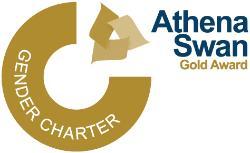Findings from IHW Academic Workload Survey 2022
Published: 20 April 2022
IHW Athena Swan Champion Breda Cullen reflects on what this recent survey told us about how academic colleagues spend their working week, the challenges faced and some potential solutions
Thank you to academic staff who took the time to complete our recent workload survey.

Ninety staff responded (39% of those invited) and response rates were similar between male and female staff. The response rate was notably lower this year than last year (59%).
We looked at the average amount of time staff are spending on various work activities, split by gender and full-time/part-time status. Among full-time staff (73% of respondents), the data suggested that women and men are spending similar amounts of time on most activities including supervision, research/scholarship, clinical work, external/KE/PE work, Athena Swan and research theme activity. There were some indications that women are spending relatively less time on teaching and more time on management/administration, compared with men. Mentoring roles are being undertaken by 29% of women and 24% of men. The results were similar among part-time staff (27% of respondents), although here it appeared that women are spending less time than men on research/scholarship, and a lower proportion of women are mentors (9% of women and 25% of men).
It was concerning to see that among full-time staff, 84% of women and 80% of men reported that they often work more than their contracted hours, and this was also very common among part-time staff (57% of women and 75% of men). Of all staff who reported this, 77% of women and 70% of men agreed that they are bothered by this. Findings were similar for women last year, but this year the percentage of men who reported feeling bothered by over-working was notably higher (up from 42% last year).
Respondents provided detailed free-text comments about challenges and potential solutions for maintaining a manageable workload and work/life balance. Challenges included:
- working from home
- too many back-to-back meetings
- high student/staff ratio
- perceived pressure for ECRs to over-work in order to be kept on
- lack of protected time to write outputs and funding applications
- guilt that saying no might cause work to fall to other colleagues, and
- time spent on pastoral support for students and colleagues.
Suggested solutions included:
- hybrid working
- having a policy to limit number/length of meetings
- more staff to mirror the increase in student numbers
- better design of administrative systems
- greater ECR job security
- challenging the normalisation of over-working, and
- having clear guidance on how time should be divided across various work activities.
The operation of a formal workload model is not consistent across the university. The Athena Swan SAT and IHW management group have considered the potential benefits of adopting a formal model, and we are keen to hear the outcomes of current discussions at UofG senior management level about the feasibility of this.
First published: 20 April 2022
<< April 2022


